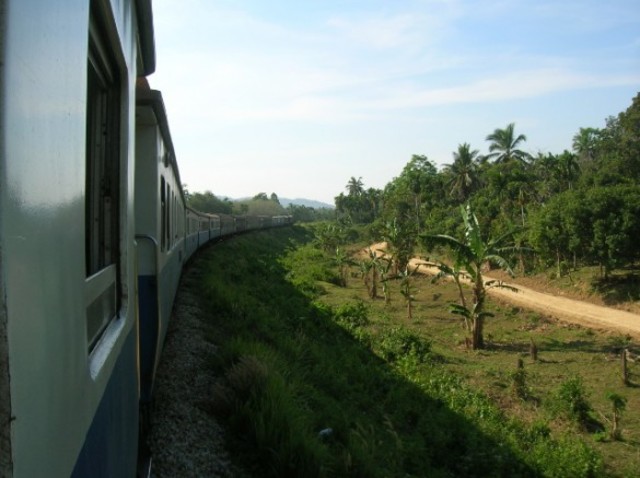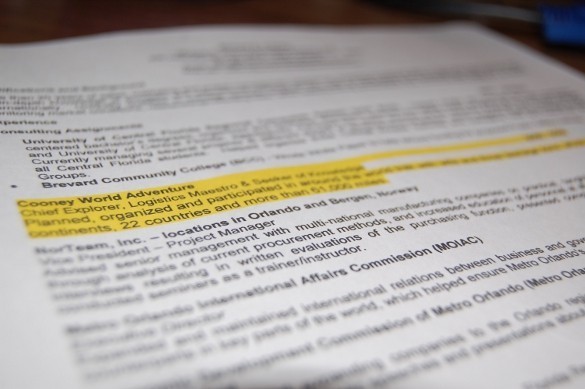My story begins on the road.
It wasn’t the road around the world though. Instead, it was Route 89 though northern Arizona. Two weeks earlier, I had graduated college. Most of my peers were heading off to work, diving into the real world. Me? With a need for solitude, time to reflect, I’d decided to take the most barren route. Through the abyss of the mountain west I charted my path far away from the freeways and arteries of America, instead parsing though the back-road capillaries, the gray squiggles on the map that most ignored. Why? I don’t know. Even as college was ending, I made no attempt to find a job. I had great friends in Los Angeles, yet now I was leaving them behind, ready for something new.
I had big goals in life. For as long as I could remember, I felt that I had the power within myself to change the world. So I drove through the desolate two-lane road, jagged cliffs in red hues surrounding the rocky desert, listening to the melodic strumming of Coldplay, the rhythms mixing perfectly with the arid landscape. There were no other cars on the road, there were no other people in the car with me. I was alone, as I wanted to be, mapping my own path, my destination uncertain but my route clear.
Because I was going to travel around the world. That was my light, and onto it, I’d pinned my future, my life, and all my desires.
—
To many of my friends and colleagues, my idea was a huge mistake, to travel right after finishing my bachelors from a prestigious American University. Moreover, I was ignoring the advice of career counselors, recruiters, and most (but thankfully, not my) parents. Why not wait and save money with a real job first? Work for a few years, secure your career, and then travel? But I was set – I’d met too many people in my life who put off their dreams for later, and then, never followed them.
13 months around the world. And, in the end, not only did I have no trouble finding work in the future, it turned out that travel had actually opened up new doors and opportunities that would have been unthinkable before.
My dream was travel, and I was going to do it now.
And I did it. 13 months around the world. And, in the end, not only did I have no trouble finding work in the future, it turned out that travel had actually opened up new doors and opportunities that would have been unthinkable before.
Here is why you should consider travel now, and why long-term travel can be a boon not only for your soul, but for your career as well.
#1 – Shorts trips can’t replace a long journey

Many people think they can replace a long trip with many short ones, during long weekends or when they get vacation. But short vacations to different countries aren’t the same as spending weeks (or months) exploring one region for an extended time.
Short trips also lead to quantification of travel. Unfortunately, we live in a numbers-obsessed society. When I returned from my trip, the question I hated most was this one; “How many countries did you visit?” Probably one of the reasons was that, for most people, that was the end of their interest in my travels.
The problem with short trips and quantifying travel is that it disregards how 99% of the travel is depth, inherently unquantifiable. Quantification leads to comparison, and one of the main themes in my book is that comparing travel experiences is a fallacy because travel is intensely personal.
I tried to one-up other backpackers stories with my own. And it never worked. My travels never matched up to others, until I realized, they shouldn’t.
Early in my trip, I didn’t know this. I would show off on Facebook to my friends about the adventures I was having and tried to one-up other backpackers stories with my own. And it never worked. My travels never matched up to others, until I realized, they shouldn’t. Once I broke away and began exploring the world at my own pace, interacting more with locals, volunteering, did I learn what it meant to let the world change you.
Short trips, no matter how many you take, can also never match up to the experiences and growth a long trip will give you.
#2 – Money isn’t a barrier unless you let it be one

Another common excuse: “Travel is expensive.” Or “I can’t save up enough.”
Not true. I worked for a year in mostly low-wage positions and saved up enough to travel, and once I hit the road, I was, essentially, in poverty. No really. By only traveling to countries with lower cost of living than the United States, staying in budget accommodation and Couchsurfing, I was able to keep my per-month cost of travel for everything – transport, accommodation, food, and even souvenirs – at less than what I would pay just for rent in San Francisco or New York in the future. And it was well below the official US poverty rate.
Too often in our consumer society, we allow money to be a barrier. In our day to day grind, we forget that money is just a means to an end, not the end itself.
But, really, you don’t need as much money to travel as you think you do. Too often in our consumer society, we allow money to be a barrier. In our day to day grind, we forget that money is just a means to an end, not the end itself. What you need to travel isn’t money, but an open mind and flexibility. If you travel longer and slower, your day to day expenses will be lower. So take that budget airline flight – if you pack light, you won’t have to check in any bags! Take the night bus to save on accommodation. The grocery store is your friend. In reality, having less money can open the doors to creativity – because where there is a will, there is a way. Frankly, traveling on a budget is a lot more fun than traveling rich!
#3 – Travel is a resume builder
Many people fear that travel will ruin a career because it’ll leave your resume with blank holes. You know what you can fill those holes with? Travel.
We live in a globalized world, and increasingly every job is becoming connected to global commerce and information. To have international experience as a long-term traveler – and, remember, long-term travel inevitably includes intense cultural experiences such as learning languages, volunteering, or working – can help your resume or application stand out from the pack.
I proudly put my trip around the world on my resume, and in the seven years since I returned, not once have I been asked about ‘wasted time traveling.’
There are other benefits, too. For example, during interviews, instead of bringing up example after example of office work, I can tell potential employers about how I dealt with adversity as a eco-volunteer in Malaysia, or how communicating in hand-gestures in rural Thailand taught me the importance of non-verbal communication. It’s not only more effective, but more fun as well!
I proudly put my trip around the world on my resume, and in the seven years since I returned, not once have I been asked about “wasted time traveling.” It’s been the opposite. In fact, my current job, working for a start-up NGO in Indonesia, looked very favorably on my previous experience in Southeast Asia during my trip around the world.
#4 – Don’t wait, just do it!

This was the philosophy that got me going when my friend first suggested the idea. Why not? Life has so many possibilities but travel is one of those rare instances when you not only make your future, but you leave it up to the hands of the many around the world who you let into your heart.
For example, during my trip I met Bine, a young, poor Nepali student whose mother had recently passed away, yet who treated everyone he met with warmth and kindness. He gave me the gift I most treasure from the voyage. If you take the chance, you allow your heart and mind to open up to endless, life-changing experiences like this.
Why not?
The opening excerpt is from Nithin’s book, Traveling Softly and Quietly. To learn more about how travel allowed Nithin to grow and pursue an international career, purchase it at Amazon today.
Editor’s note: Here at BootsnAll, one of the biggest reasons we believe long-term travel is so important is because of its transformative power and the education it provides. As with most travelers who take a big trip, Nithin learns learns a great deal about the world and its people, but as I read Traveling Softly and Quietly, the most powerful and moving story is the one going on internally. If you are interested in getting inside the mind of a long-term traveler and seeing the opportunities for personal growth, then Nithin’s book offers a fantastic glimpse.
Photo credits: Ewa Studio, all other photos courtesy of the author and may not be used without permission.
